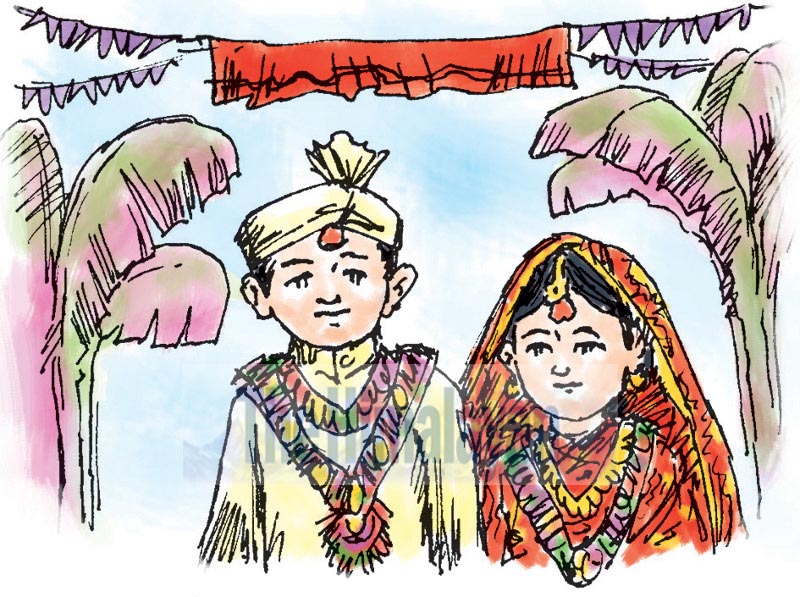Incidents of child marriage on the rise
Kathmandu, July 29
The new penal code has prohibited child marriage. It has also increased the marriageable age to 20 years. Yet, children below the permissible age continue to be married off.
Data with Nepal police showed there were 15 cases of child marriage in fiscal 2013-14 followed by 23 in fiscal 2014-15, 20 in 2015-16, 26 in 2016-17 and 59 in 2017-18. Spokesperson for the Office of the Attorney General Sanjeeb Raj Regmi said awareness programmes should be launched in areas where incidents of child marriage were high as laws alone could not prevent child marriage.
“In some areas, it is customary to marry off children early or before boys and girls attain 20 years of age,” Regmi said, adding that the government should sensitise people about the need to raise the marriageable age of their offspring to 20 years. “The message that permissible age for marriage ensures the well-being of both mothers and newborn babies should be communicated well in society. Stakeholders also need to make the public aware that those practising child marriage, particularly the guardians, would be punished by law,” he added.
Regional Manager of Centre for Reproductive Rights Purna Shrestha said child marriage was a crime and a violation of human rights. She said child marriage had led to multiple health complications in mothers, including unwanted pregnancy and uterine prolapse. “Boys and girls who get married before permissible age drop out of school and they also become victims of psychological, physical and sexual violence,” she said.
She said it was important to treat child marriage as a crime and not a cultural practice. “There are people who still treat child marriage as a cultural practice. This poses obstacle in rooting out the social evil of child marriage,” Shrestha added.
Sustainable Development Goals also envisage abolition of child marriage by 2030.
Shrestha said the new penal code was better than the previous general code as it made child marriage void, but anti-dowry laws also needed to be implemented. “There are communities that tend to marry off their daughters at an early age because they think doing so would spare them from the burden of dowry in future,” she argued.
“In our society, people look down on girls whose marriages have been nullified by the law or who have been abandoned by their spouses,” she said.






